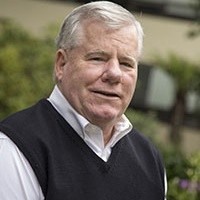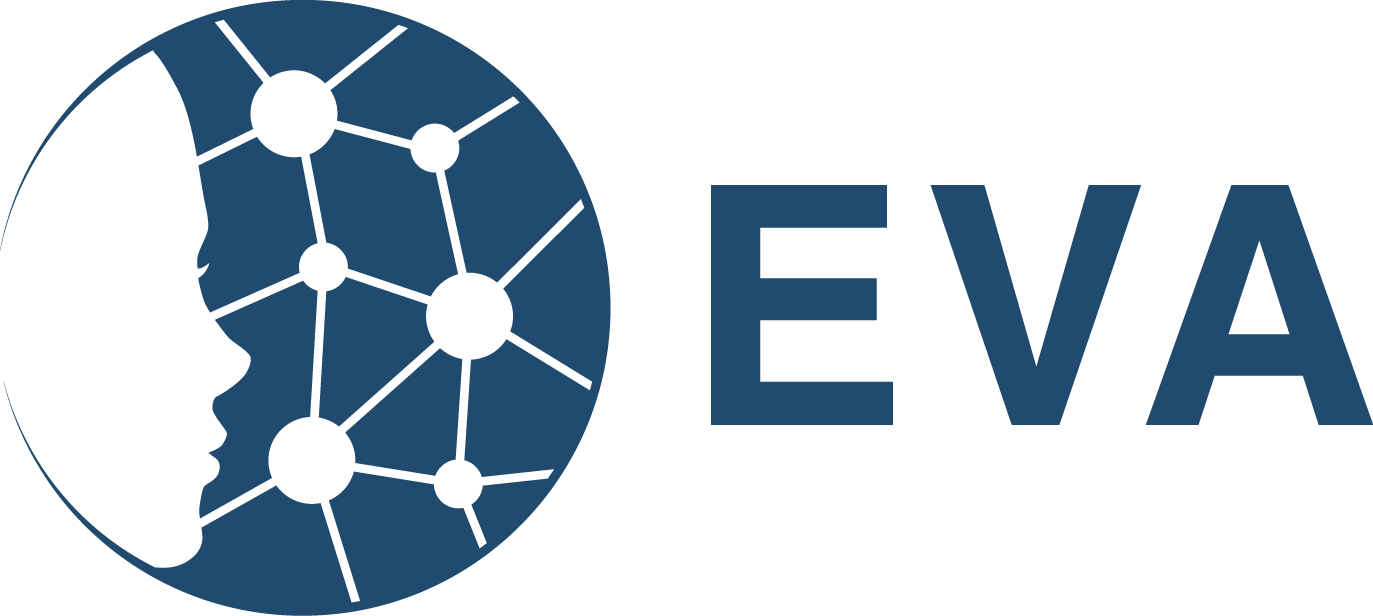What is AI in recruitment?
AI in recruitment is the technology designed to streamline or automate recruiting workflow, especially repetitive, time-consuming, high-volume tasks.
Automation in recruiting is the technology that takes over individualized, time-consuming and manual processes, allowing recruiters to increase productivity, reduce cost-per-hire, accelerate time-to-fill, and improve the overall workflow efficiency.
How AI and Automation help recruiters
Once AI and automation take over some of the recruiter’s workload, their productivity gains are undeniable.
According to the Korn Ferry survey on how AI reshapes the role of recruiter, nearly two-thirds (63%) of respondents say AI has changed the way recruiting is done in their organization. When asked to compare the quality of candidates today to 5 years ago, when AI was still in its infancy, 59% percent said candidates are more qualified today, and 51% percent said roles are filled in a more timely manner.
When it comes to implementing the technology and making recruiter and candidate’s life easier, where do you start?
I asked a group of recruitment and HR influencers, where in recruitment AI should be implemented first? And why do they think so?
Here are 15 experts who give their unbiased opinions on AI in recruitment:
J.T. O'Donnell 
"For me, I think AI is very useful as a way to build a more memorable first impression as an employer. Chatbots can replace recruiters for the initial conversation by setting them up to ask a set of qualifying questions and to share the company's employer brand. This immediately engages the talent and creates an experience that increases the chances they'll respond when the company follows up on the initial chabot conversation. Plus, the immediate responsiveness enables employers to get the attention of passive job seekers who might otherwise lose interest after viewing the page."
J.T. is a CEO at WorkItDaily.com. Follow her on LinkedIn and Twitter for some career therapy!
 Greg Savage
Greg Savage
"Any task that takes no time to think about will be automated.
Where potential answers can be predicted and predefined, an algorithm can be written, and through machine learning a computer will predict outcomes with scary accuracy.
But where it takes thought and planning and opinion, it is much harder for AI to replicate.
Where there are shades of grey, nuance and influencing possible, AI is currently useless.
So a brilliant example of what I am saying is what most recruiters call ‘sourcing’.
Finding someone can be done by an algorithm. If you key in ‘Melbourne, UX designer’, a machine will scour LinkedIn, Twitter, Facebook, and a thousand other digital storage houses and find the people.
Well actually, no, it won’t find people, it will find their profiles!
And that’s the point. The profiles can be found by machines. The people are harder to reach.
Because approaching that person takes skill and finesse. It’s a tailored, sophisticated, bespoke outreach. That takes thought, planning, and market knowledge. It’s a seduction. It’s a sell.
When is AI going to do that?
This is how we must face the future that will be hard upon us soon.
AI, and technology generally, frees you up to do much better that which only you can do
This is absolutely critical to grasp and act on."
Read Greg's full take on AI in Recruitment here, and follow him on Linkedin and Twitter to read thought-pieces from the most influential Australian business person on Twitter!
 Paul Slezak
Paul Slezak
"I believe AI should be brought into the recruitment process at any stage that is not directly impacting the relationship between either the recruiter and the candidate, candidate and client, or recruiter and client / recruiter and hiring manager. In terms of the recruitment process for recruitment consultants (as opposed to internal recruiters), I feel that AI should be considered if it can take the place of any non-direct revenue-generating activities.
For example, co-ordinating and scheduling interview times between the recruiter and the candidate or the candidate and the hiring manager. This is a complete waste of time for any busy recruiter and there are some amazing AI tools that give a recruiter plenty of time back to focus on building client and candidate relationships.
Have you ever tried Textio? It's a game changer. Why should recruiters waste hours writing ads or email outreach copy (when often copywriting is not their main skill)? This AI tool is a perfect solution to dramatically reduce the time it takes to write engaging copy.
Reference checking - another huge time zapper (from a chasing / co-ordination) perspective. Recruiters should embrace tools like XRef or Referoo.
Recruiters (whether internal or external) need to remember that they are sales people and relationship builders. Not co-ordinators, administrators, or note takers.
Recruiters need to embrace AI! It's not going anywhere!"
Paul is a Cofounder & CEO with RecruitLoop. Follow him on LinkedIn and Twitter to get better at hiring!
 Michael Berns
Michael Berns
"As with most other AI use cases - AI is not a panacea but it can often help when dealing with vast amounts of (unstructured) data.
When you think about Recruitment you have a number of imbalances which AI could help to address better.
I like to mention three:
The first one is from the employer perspective - how do I select the best candidate long-term from a vast amount of applicants and potentially from even more records of potential candidates.
The second one is from the candidate perspective - out of all the options available to me - which company / role the best fit long-term, where can I leverage my skills and interest the most?
Thirdly once employer and candidate have been matched, how do I make this process enjoyable and efficient for both sides?
As an AI Thought Leader and Startup Mentor I would focus on the first option from a commercial go-to market perspective, but not lose sight of the second and third option. If I manage to do that while at the same time overcoming unconscious bias - even better!"
Michael is an AI & FinTech Practice Leader at PwC Europe. Follow him on Linkedin and Twitter for AI thought leadership!
 Ross Clennett
Ross Clennett
"A.I. will have the edge in areas that are black and white (e.g. the candidate either has the relevant skills or not, because their resume or LinkedIn profile makes that obvious through job title and job responsibilities).
Recruiters will, potentially, have the edge in the grey areas because through asking the right questions at the right time they will uncover relevant information about a candidate’s, for example, availability and flexibility on remuneration.
Of course that’s what very good recruiters do already: they ask relevant questions, listen to the answers and use their influencing skills to deliver win/win outcomes for both candidates and clients.
This ‘grey area edge’ that recruiters potentially have is just as relevant on the client side when there’s a job to be filled.
Using the hypothetical example of a client submitting a job description for a permanent role, A.I. selects and ranks candidates, either discovered or submitted, on the black and white selection criteria. The ‘grey area’ that the recruiter utilises here, to their and their client’s advantage, is that they know an excellent candidate who is only interested in home-based contract work. The recruiter talks to the client about flexing the job to make it a predominantly work-from-home contract and then talks to the contractor who then agrees to work onsite one day per week for collaboration purposes.
This is a win/win/win outcome that the recruiter has facilitated; one that A.I. almost certainly would not have delivered."
Ross is a high-performance recruitment coach. Read his full take on AI in recruitment here, and follow Ross on Linkedin and Twitter to step up your recruitment game!
 Dave Millner
Dave Millner
"Recruitment is undoubtedly going to be a key focus for AI applications over the next year or so. Talent acquisition historically, from various studies and analytics projects, can have the greatest impact on revenue growth and improved profit margins when it is done well with a robust evidence based approach.
Potential applications of AI in recruiting are likely to include screening of CV's and applications, sourcing of possible candidates based on key criteria and experience, chatbots to engage with candidates to ensure consistency and focus throughout the recruiting process and assist in the assessment process to provide insights into the capabilities of the candidate.
The challenge is where to start. For me the easiest place to build a business case for the AI investment revolves around the introduction of chatbots; they can simply the process, provide standardisation of approach and ensure that the candidate experience (which is becoming more crucial than ever before) will promote and reinforce the organizations brand etc.
The key is that their use can ensure that the recruiter is focusing their expertise and attention on the right candidates, collecting evidence more consistently and using their expertise more effectively; instead of being immersed in administrative tasks they can focus on the candidates and probably run more campaigns simultaneously which again can only help build the business case for the investment.
It will mean a mindset change for the recruiter in terms of process and trust in the AI methodology. It will also mean that only the best recruiters will survive!"
Dave is a Founder and Consulting Partner at HR CURATOR LTD. Follow him on Linkedin and Twitter to transform your HR functions!
 Shally Steckerl
Shally Steckerl
"Yikes. That’s a leading question now isn’t it… So many assumptions! First off, let me begin by stating that there is no such thing as intelligent machines – yet! It is still just logic trees, and as such dependent on the designer’s foresight. When we do have machines that can make decisions in non-homogenous environments better than humans then the area of focus in recruitment should be in answering candidate questions, guiding inquiries and routing them, connecting them, to the right people.
Technology will help automate the things we currently don’t have the bandwidth to do. We would LIKE to speak with everyone who comes to our website but if that’s 1,000’s of people an hour that requires a full staff. However, a “decision tree” based chatbot can help answer common questions and direct people. So in that sense it is bringing humans closer together."
Shally is a Founder at The Sourcing Institute and The Sourcing Institute Foundation. Follow him on Linkedin and Twitter for innovative recruitment strategies and techniques!
 Jessica Miller-Merrell
Jessica Miller-Merrell
"AI is so vast and the possibilities are endless. I believe that AI can help with streamlining small processes and helping fill in those gaps where candidates were commonly overlooked such as a candidate bot to answer questions or automate followup and scheduling. A hot area there is a lot of movement on is AI sourcing which I think is a promising concept.
I'd like to see more in candidate matching using AI and in underserved recruiting areas including diversity and inclusion. Companies often don't understand that diversity gaps exist or they are blind to them. AI could help shine a spotlight on communities and candidates of opportunity."
Jessica is a Chief Innovation & Content Officer at Workology. Follow her on Linkedin and Twitter to hear from one of Forbes top 50 most influential social power users!
 Dr. John Sullivan
Dr. John Sullivan
"The primary impact of AI will be the results from machine learning which will help recruiting leaders to determine “what actually works” and “what doesn’t work” in the recruiting process.. Machine learning will replace intuition because it allows recruiting functions to much more accurately identify the factors that accurately result to the hiring of top performers. Machine learning will reveal the most impactful attraction factors, recruiting sources, interview questions, selection criteria and which recruiters hire the best.
AI/machine learning will force a more scientific approach where data from both successful and unsuccessful hires leads to continuous improvement in the performance of new-hires. Machine learning will also provide convincing data that will help executives understand the business impacts in dollars of great versus average hiring. And this direct connection to business performance will lead to better funding of the recruiting function."
Dr. Sullivan is Professor, Corporate Speaker and Advisor at the San Francisco State University. Follow him on Linkedin and Twitter for prolific Talent Management Articles!
 Ian Bailie
Ian Bailie
"I think the biggest opportunities for AI to assist with the recruitment process are in helping to automate the sourcing process, both in terms of finding new passive candidates and in re-activating CRM/ATS databases or silver medallist candidates. Helping recruiters to identify candidates quickly that already have an interest in your company or are a good fit on paper and streamlining the beginning of the recruitment process is a great opportunity to improve efficiency and allows recruiters to focus on candidate and hiring manager engagement."
Ian is a Head of HR AI Research at CognitionX. Follow him on Linkedin and Twitter to get more clarity on All Things AI!
 Joe Burridge
Joe Burridge
"AI should be implemented first at the very start of the hiring process; the application review. Not only will AI remove the labour intensive side to this task but, in time, a machine could be better at reviewing applications than a human. Machines avoid the inherent the biases that we humans possess and with access to the companies entire ATS they could automatically recommend the candidate for other positions in the business too"
Joe is a Senior Recruiter at Electronic Arts (EA). Follow him on Linkedin and Twitter to learn how to build a personal brand in recruitment (and to get some cool gaming updates!)
 Mark Pearce
Mark Pearce
"AI isn't a strong point for me. I do use automated software for a number of low-level things like Buffer for my social media posts.
Where AI is used first is open to debate. Personally, I don't think you can beat the human touch. Recruitment is a high-touch industry. Only those who rely on software to do their recruiting will disagree.
Where can it be used first? Possibly in the talent attraction space - i.e. job ads and candidate capturing. That said, I believe great recruiters have to write ads that attract the right people. If you've seen the quality of ads online, they're literally job descriptions that have been loaded into a computer and posted online. That's an example of AI not working.
Automation makes our jobs easier, so long as we've ruled out anything that could affect candidate experience. To put it simply, AI, machine learning or automation should be used for low-level tasks that remove some of the grunt work. I'm yet to see a piece of AI that's blown my socks off."
Mark is a Director of Mining & Infrastructure at Inverse Energy. Follow him on Linkedin and Twitter for strategic recruitment content!
 Todd Raphael
Todd Raphael
T: I'm not sure the answer, because I wouldn't necessarily implement AI. Don't get me wrong - I'm not anti-AI. But the question assumes you're going to implement something, and you need a reason to implement something.
K: AI could help predict ready-to-move candidates and fill the recruiter's pipeline. So that's where I would start. Do you find sourcing to be a compelling reason, for example?
T: Yes, technology in general. But AI? It's hard to say what's "artificial intelligence" and what's not. In general, though, yes, technology that can help find the right people at the right time, especially people you didn't know about, can be really valuable.
Todd is an Editor in Chief at ERE Media. Follow him on Linkedin and Twitter for views on HR trends and technology from one of the most game-changing influencers In recruitment!
 Jim Stroud
Jim Stroud
"Candidate engagement is where AI should be implemented first because if candidates can get insights on where they are in the recruitment process, it may reduce the trend of ghosting."
Jim is a Global Head of Sourcing and Recruiting Strategy at Randstad Sourceright US. Follow Jim on Linkedin and Twitter for HR, Recruiting and Job search strategies that work!
 Steve Goldberg
Steve Goldberg
"It should be implemented in qualifying candidates for jobs. Having AI hone a search for the right background, and learn from what does and does not work, would be a valuable proposition."
Steve is an Owner, Managing Partner, Exec. VP at Media Recruiting Group, Inc. Follow him on Linkedin and Twitter for niche experience and thoughtful posts on digital, media, sales, career development, hiring and recruitment topics!
Many thanks to experts who graciously shared their time and wisdom on the ever-changing space of AI in recruitment. Get in touch with eva.ai team for a walkthrough of where AI could be implemented in your recruitment workflow - and what ROI you may expect from it.


